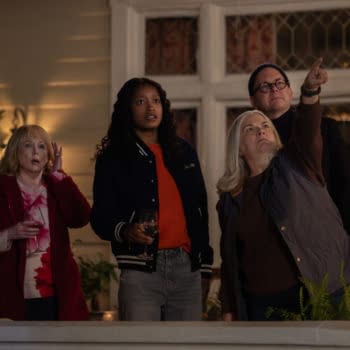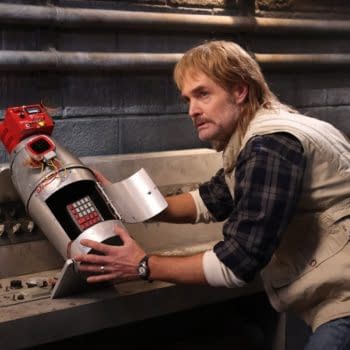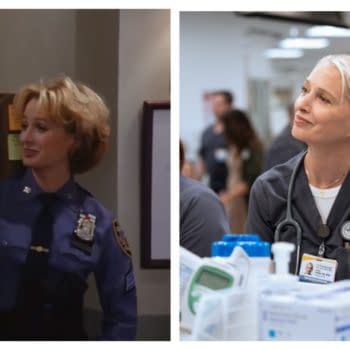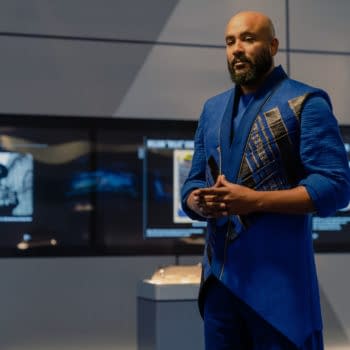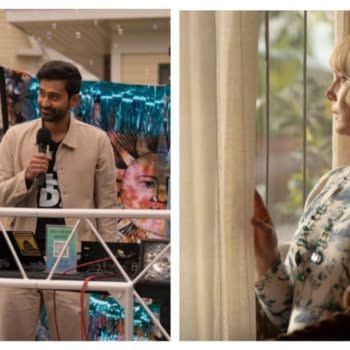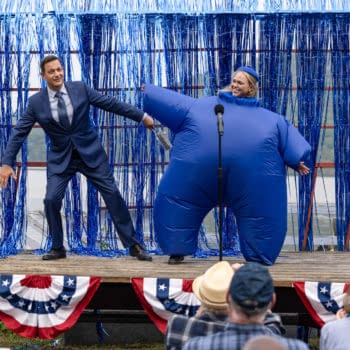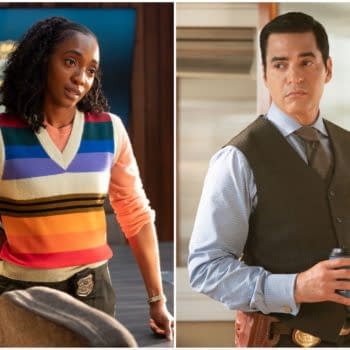Posted in: AMC, CW, Fox, Game Of Thrones, HBO, Review, Supernatural, The Orville, TV, Walking Dead | Tagged: bleeding cool, books, cable, cliches, Clip Show, game of thrones, it's a wonderful life, novels, opinion, streaming, television, The Orville, The Walking Dead, tv
"Supernatural," "The Orville" & More: 5 TV Clichés Needing a Red Card [BC TV MELTDOWN-OPINION]
Being a lifelong TV couch potato affords certain patterns of behavior observed among television programming. While there is some leeway given how episodic writing varies depending on the scribe, but in the very least, it should be the showrunner/executive producer's responsibility to make sure continuity stays intact. There are many clichés past and present many TV shows are guilty of and we've isolated five of them… but be warned: we go after some popular shows, like Supernatural, The Orville, and more.
!["Supernatural," "The Orville" & More: 5 TV Clichés Needing a Red Card [BC TV MELTDOWN-OPINION]](https://mlpnk72yciwc.i.optimole.com/cqhiHLc.IIZS~2ef73/w:auto/h:auto/q:75/https://bleedingcool.com/wp-content/uploads/2019/08/toxictv-1.jpg)
● The (In)Famous Clip Show!
This is reserved typically of long-running series where the show does the bare minimum amount of shooting to edit some past favorite memorable clips. This used to be more common among older programs, but despite the advent of YouTube, behind-the-scenes documentaries, and entertainment-related programming like Entertainment Tonight, the use of clip shows should have long been done away with.
If you can fall short of your episode quota, there's nothing wrong with producing an original non-canonical stand-alone episode as some bonus to fans. I'm sure most would prefer that over a throwaway clip show. It's one thing if it was a behind-the-scenes special, but putting it in the middle of a season is just lazy and unnecessary when fans can access these favorite scene anytime.
● Forgetting Major Plot Points that Happened to Characters
If there's one thing that's important to maintain continuity and depth, it's communication. If something important happens to one character in one episode – and then the next, he/she acts like nothing happened – people are going to pick up on that real quick.
!["Supernatural," "The Orville" & More: 5 TV Clichés Needing a Red Card [BC TV MELTDOWN-OPINION]](https://mlpnk72yciwc.i.optimole.com/cqhiHLc.IIZS~2ef73/w:auto/h:auto/q:75/https://bleedingcool.com/wp-content/uploads/2019/04/sn1417b_0015bc2.jpg)
In Supernatural, Jack Kline (Alexander Calvert), a nephilim born from his human mother Kelly (Courtney Ford) and the archangel Lucifer (Mark Pellegrino), was a strong ally of the Winchesters, Sam (Jared Padalecki) and Dean (Jensen Ackles) as well as Castiel (Misha Collins). Jack helped far more than hurt with his powers as he tried to understand them. In season 14, he tries to atone for his "sins" by fixing his past mistakes. Despite the Winchesters and Castiel having previously been possessed at different points of the series and killing innocents, the three get a pass. Yet somehow Jack had to be "put" down for his actions. After everything that's happened to the three characters, it made far less sense that Dean would take such a resolute stance against "family."
In The Orville, Isaac (Mark Jackson) was just thrown back into the crew to act like nothing happened following the events of the two-parter "Identity" – where he participated in a coup with his fellow Kaylons to invade earth. While he did end up being intricate part of the Orville and the Planetary Union's victory, there are quite a few who were injured and killed due to Isaac's inaction. I hope it's addressed in season 3, because they dropped the ball on this one.
● Recycling Stories to Fit Current Characters
Some of TV franchises' best stories are re-imaginings of classic stories, but given what's out there, do we really need another retelling of A Christmas Carol or It's a Wonderful Life through our favorite programs? The Married with Children episode "It's a Bundyful Life", Star Trek: The Next Generation's "Tapestry" and The Orville's "The Road Not Taken" are classic examples of what happened if the main character didn't factor into the show's existing universe in their leading position.
There are many other classics to pull from, but it seems like Hollywood likes to draw from about five of them. If the show's insist on doing these stories, how about letting the lessons of the story stick with them rather than go "business as usual?"
● Giving Auxiliary Character More to Do Before Killing Him/Her
Most of the time when there's an auxiliary character that isn't given that much to do compared to the main characters gets far more exposition than usual, that usually means he/she is going to die. If the person always had 1-3 lines and it jumps to 10-15, then you know they got the spotlight and won't get it again.
The Walking Dead is one such show that's notorious for this.
This isn't just on TV, but films too. In Star Trek II: The Wrath of Khan, we get introduced to Scotty's (James Doohan) nephew who's "so full of promise" early in the film – only to die later as the Enterprise battled the Reliant.
If it's a long-running TV show and anyone can go at any minute, it should be a real shock to fans when one does bite the dust. Unfortunately, the element of surprise is a luxury few can have with rumors and news running rampant about an actor's casting to star on a new show.
● Book Fans Will Almost Always Be Unhappy
This is one of the newer clichés as more popular books get adapted to TV or film. I used to follow The Walking Dead religiously and never miss an episode. One of the biggest complaints heard is how much it deviates from the original Robert Kirkman series. What is the exact expectation for a series to copy the books? If everything were to be one-to-one, there would be almost nothing left that is exclusive to the TV viewer and everything would be predictable. Quality shows need to offer fans and non-fans something novel so they can keep coming back.

Photo courtesy of HBO
Same thing goes for Game of Thrones: George R. R. Martin introduced more auxiliary characters and spread out certain things that happened to them, but were given to other characters on the TV show. Boo-freaking-hoo that we never got Lady Stoneheart, Caitlyn Stark resurrected courtesy of the Brotherhood without Banners. The Starks in the series still got their revenge and prestige back in the end. So what if what happened to Jeyne Poole in the novels happened to Sansa instead on the TV show – these creative decisions tend to focus on the core main characters, with a television series not having the non-visual advantage of the printed page.
Keep in mind Martin still has two novels he hasn't finished in A Song of Fire and Ice series. David Benioff and D.B. Weiss did what they could with the time they had left to tie up loose ends on their epic story and keep in mind, Martin had say throughout the series' run.
While the final season wasn't the show's best, toxic fandom did play a factor in enjoying it since so many felt things had to end "their" way. While good showrunners should remain faithful to the overall goal and point of the original work, they should also be given the creative freedom to try new things.






